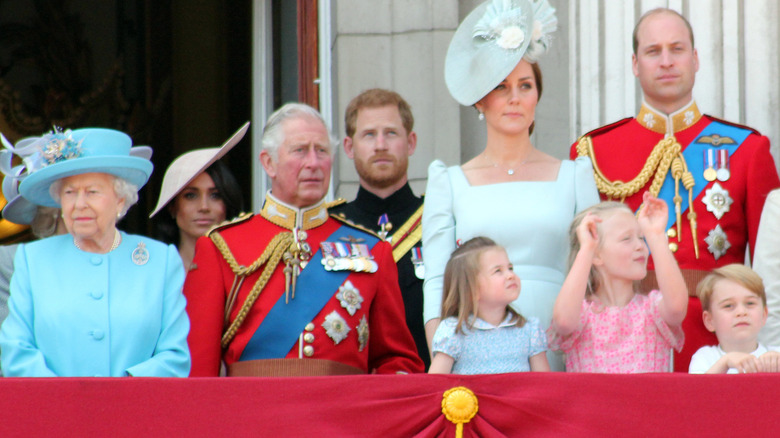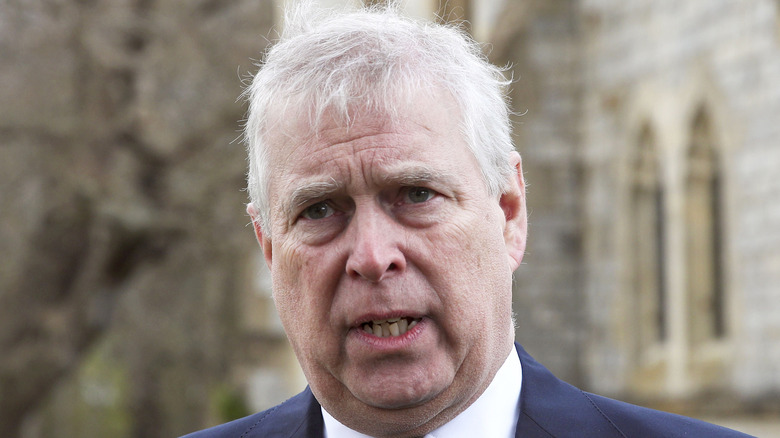Can Members Of The Royal Family Be Arrested?
Over the centuries, kings and queens in Europe (and elsewhere) have learned the hard way that their status as the monarch doesn't mean that they can't be held accountable for their actions. For example, over in England, Charles I was tried for treason, and wound up losing his head to the executioner's axe in 1649, as Historic Royal Palaces reports. Similarly, over in France, multiple members of the royal family, or those associated with the monarchy, lost their heads to the guillotine during the French Revolution of the late 1700s, as Britannica notes.
These days, most European monarchs have little to no real political power, and their opportunities to anger their populaces and risk their heads are limited. However, that doesn't mean that they don't run afoul of the law from time to time. For example, back in 2019, as The Guardian reported, Prince Philip was involved in a car accident that could very well have resulted in him getting a ticket or even facing criminal prosecution, but no charges were ever filed. However, as it turns out, if a member of the royal family commits a crime — excluding the queen (or king, as the case may be) — they can be criminally prosecuted.
Members of the royal family can be arrested and tried, but it's complicated
First and foremost, the reigning monarch — in this case, Queen Elizabeth II — cannot be arrested, tried, or convicted for any crime. As Today I Found Out notes, justice in the United Kingdom is carried out in the name of the queen, and since Her Majesty can't prosecute herself, she's effectively above the law.
As for other members of the royal family, they can indeed be arrested and tried for crimes, minor or major. As Wales Online notes, there are rules, such as that no one can be arrested in the queen's presence, or in certain royal properties, which means that a member of the family could theoretically go on the lam and hide out in a royal palace until the end of their days.
In the case of Prince Andrew (above), who has been accused of sex crimes against a woman who was a minor at the time, he may yet wind up facing criminal charges in the U.S., notes Avenue Magazine, and an extradition treaty between the two countries would allow for him to be brought here for prosecution. However, the magazine also posits that he could take advantage of the law and simply remain inside Windsor Castle, where he lives now, for the rest of his life.

